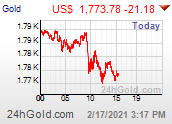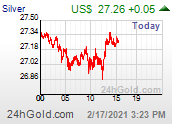MARIJUANA DESTROYS THE BRAIN by Phil Goodstein - Naysayer - January 2014
 |
| Historian and author Phil Goodstein |
In part, the war against marijuana in the 1930s was among Franklin Roosevelt’s intense strengthening the forces of federal repression. The president saw the vast expansion of the powers of the FBI whereby J. Edgar Hoover established himself as the nation’s leading policeman. Simultaneously, the attack on marijuana was also a means of social control. Advocates of banning the substance argued grass was primarily associated with blacks and Hispanos. Rather than seeing that racism was firing their revolts against the status quo, the righteous guardians of bourgeois civilization attributed the protests of these victims of everyday discrimination to their use of pot.
Shallow critics of the status quo have since been of a like mind. This especially stood out during the upheavals of the 1960s. At that time, the counterculture emerged. Unlike the civil rights movement or the New Left, which challenged power and offered programs for political and economic change, there was the Timothy Leary crowd. Drugs were its answer and the alternative to a hideous social reality. Potheads saw no hope of changing the world through conscious mass action designed whereby everyday people could collaborate and forge their own destiny. Drugs, rather, were to provide an exhilarating alternative to a thoroughly irrational world.
From the beginning, this drug culture was as shallow as the most avid advocates of the J. Edgar Hoover police state. The embrace of marijuana and other substances was a parasitical growth on movements of social change. More than that, it was quickly part and parcel of a criminal underworld. The government, in turn, seemingly readily encouraged the use and sale of illicit substances. This not only gave it a pretext to target those whom it did not like, but Washington drastically increased the penalties for drug use while vastly enlarging the prison system. In the process, individuals who had embraced marijuana and other substances as their veritable religion became unwitting political rebels and victims of a vindictive government. A protest against the insanity of the war on drugs, consequently, was a protest against the world that both banned drugs and made recourse to them a most logical option in an alienating, repressive, culturally empty society.
The war on drugs also reflected the pompous hypocrisy of those with power. Now that they had the laws, the police, and the prisons, they had no desire to let go of them. Indeed, the more the government warred on drugs, seemingly the worse drug use and abuse became, particularly with the rise of crack cocaine. Increasingly, anybody with the slightest spunk or integrity saw that the drug-suppression machinery was far more dangerous to the health of the body politic than anything banned substances might produce.
Simultaneously, a rich drug lore grew up. At a time when the medical machine was ever more dependent on fancy, high-priced pharmaceuticals, the more hearsay evidence grew that marijuana might have some excellent medicinal benefits. Far from launching the vigorous tests necessary to substantiate whether there was any validity to these assertions, Washington responded with yet more hypocrisy and further crackdowns. In face of this, the legalization of marijuana started to become the center of a movement of revolt against big government. Ever more citizens, including far more than those who found their religion in opium, saw that an attack on marijuana laws was a tiny wedge through which they could protest the increasing coercion of Big Brother. Added to this, they had the wonderful legacy of Populist and Progressive revolts whereby, through the initiative process, they could challenge state laws against marijuana.
Medical marijuana was the spearhead in the effort. Its success, in turn, revealed another of the mind-warping characters of hashish. No sooner did marijuana dispensaries open than it was obvious they were not places to help the ill, but shops profiting from selling weed. This part of the counterculture so showed itself fully in tune with the worst of American capitalism.
Now, with Colorado’s outright legalization of marijuana, the money-making possibilities of the drug seem unlimited. Promoters have openly and eagerly embraced the tobacco industry as their model. In the name of profiting from growing, processing, and selling marijuana, they want to make it as omnipresent as tobacco was in the mid-20th century. In the same way that the tobacco crowd long touted their drug as a healthy, nerve-calming habit, the marijuana entrepreneurs are oblivious to what the health consequences of marijuana consumption might be. They are as ready as the most obnoxious of tobacco consumers literally to blow smoke in everybody’s face.
Nor do marijuana champions, including those touting its supposed medicinal benefits, ponder that a user constantly drawing smoke into his/her lungs could be direly impairing his/her health. This is not surprising. Many of the self-avowed New Age proponents of the counterculture not only had places filled with drugs, but also with tobacco pollution, including self-described healthy dining establishments. They made it clear that they embraced Jim Crow: those not wanting to breath clouds of smoke were not welcome to their thoroughly phony world.
Given this, the debate over marijuana regulation has been as empty as the rest of the discussion of drug policy. It reflects both an empty civil culture and the utter shallowness of the marijuana crowd. The latter have no concern with why drugs have had such a powerful allure; they simply demand the right to use and abuse them. Opponents, in turn, do not even have the wit to realize why many so want to escape from the distress, alienation, and misery of a heartless society. As such, the whole controversy is apropos of people caught in a miasmic cloud of marijuana smoke combined with the fog and confusion spewed forth by those who accept the status quo as so eternal there is no escape from it but in more drugs.










0 comments:
Post a Comment